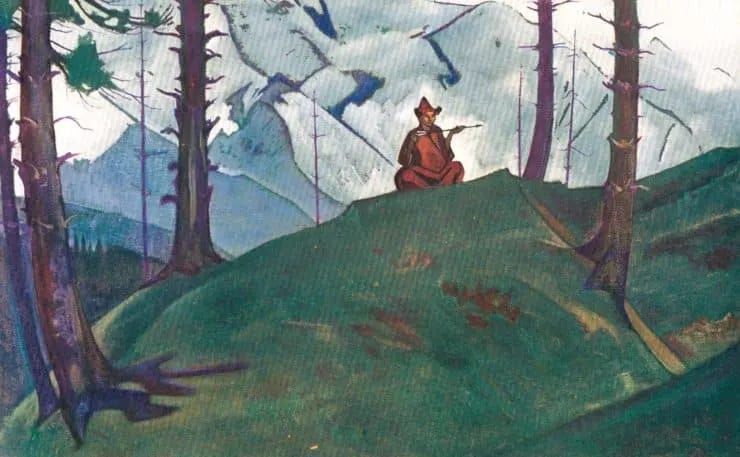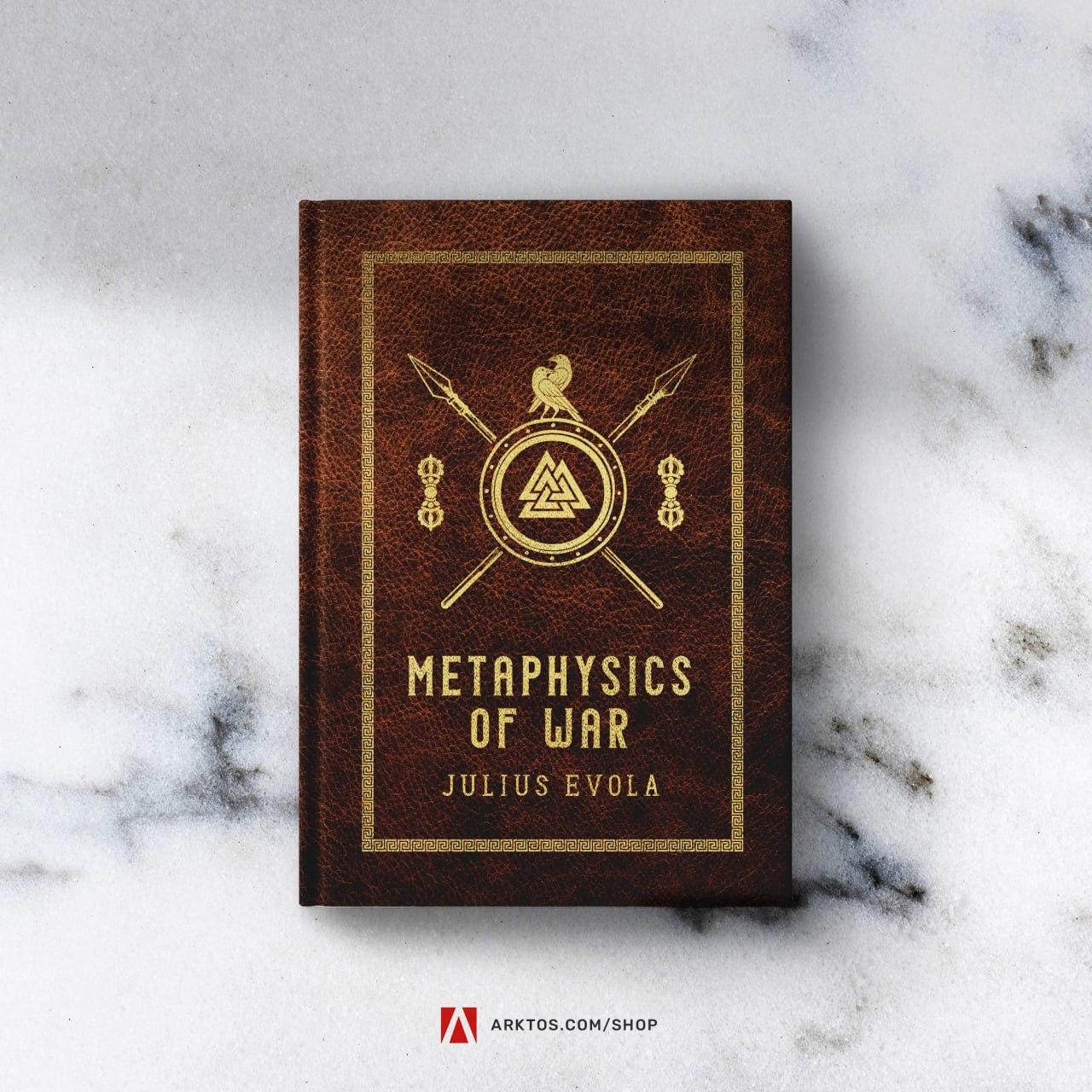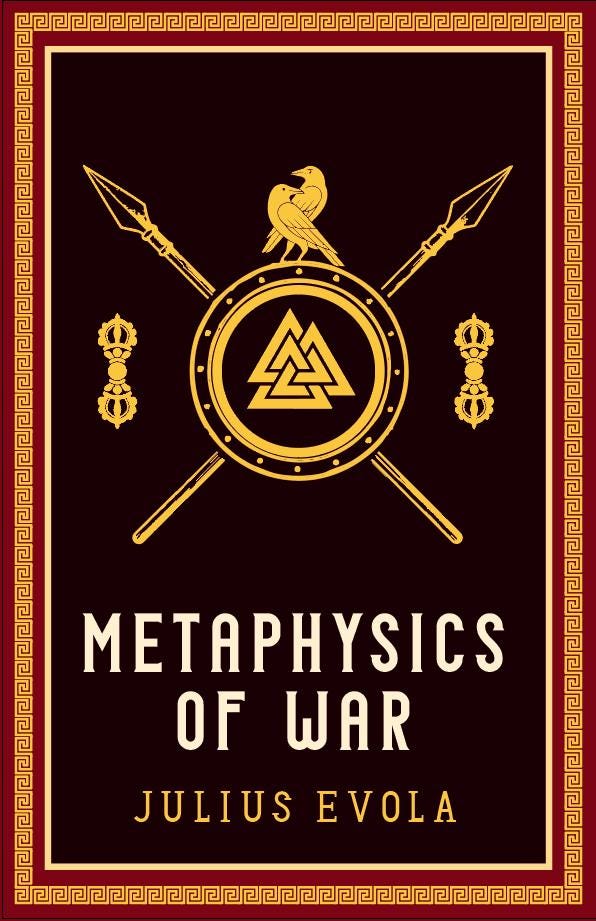From Survival to Liberation
by Julius Evola
In his masterpiece Metaphysics of War, Julius Evola proclaims that times of crisis and destruction can awaken people from bourgeois life, forcing them to confront the transience of worldly attachments and rediscover a higher, spiritual awareness that transcends individual existence.
It is a principle of ancient wisdom that situations as such never matter as much as the attitude that is assumed while in them, and therefore the meaning that is attributed to them. Christianity, generalising from a similar viewpoint, has been able to speak of life as of a ‘test’ and has adopted the maxim vita est militia super terram.
In the quiet and ordered periods of history, this wisdom is accessible only to a few chosen ones, since there are too many occasions to surrender and to sink, to consider the ephemeral to be the important, or to forget the instability and contingency which is the natural state of things. It is on this basis that what can be called, in the broader sense, the mentality of bourgeois life is organised: it is a life which does not know either heights or depths, and develops interests, affections, desires and passions which, however important they may be from the merely earthly point of view, become petty and relative from the supra-individual and spiritual point of view, which must always be regarded as proper to any human existence worthy of the name.
The tragic and disrupted periods of history ensure, by force of circumstances, that a greater number of persons are led towards an awakening, towards liberation. And really and essentially it is by this that the deepest vitality of a stock, its virility and its unshakability, in the superior sense, can be measured. And today in Italy on that front which by now no longer knows any distinction between combatants and non-combatants, and has therefore seen so many tragic consequences, one should get used to looking at things from this higher perspective to a much greater extent than is usually possible or necessary.
From one day to the next, even from one hour to the next, as a result of a bombing raid one can lose one’s home and everything one most loved, everything to which one had become most attached, the objects of one’s deepest affections. Human existence becomes relative – it is a tragic and cruel feeling, but it can also be the principle of a catharsis and the means of bringing to light the only thing which can never be undermined and which can never be destroyed. We need to remember that, for a complex set of reasons, the superstition which attaches all value to purely individual and earthly human life has spread and rooted itself tenaciously – a superstition which, in other civilisations, was and remains almost unknown.
The fact that, nominally, the West professes Christianity has had only a minimal influence in this respect: the whole doctrine of the supernatural existence of the spirit and of its survival beyond this world has not undermined this superstition in any significant way; it has not caused knowledge of what did not begin with birth and cannot end with death to be applied in the daily, sentimental and biological life of a sufficient number of beings. Rather, people have clung convulsively to that small part of the whole which is the short period of this existence of individuals, and have made every effort to ignore the fact that the hold on reality afforded by individual life is no firmer than that of a tuft of grass which one might grab to save himself from being carried away by a wild current.
It arouses this awareness precisely not as something cerebral or ‘devotional’, but rather as a living fact and liberating feeling, which everything today that is tragic and destructive can have, at least for the best of us: creative value. We are not recommending insensitivity or some misconceived stoicism. Far from it: it is a matter of acquiring and developing a sense of detachment towards oneself, towards things and towards persons, which should instil a calm, an incomparable certainty and even, as we have before stated, an indomitability. It is like simplifying oneself, divesting oneself in a state of waiting, with a firm, whole mind, and with an awareness of something which exists beyond all existence. From this state the capacity will also be found of always being able to begin again, as if ex nihilo, with a new and fresh mind, forgetting what has been and what has been lost, focusing only on what positively and creatively can still be done.
A radical destruction of the ‘bourgeois’ who exists in every man is possible in these disrupted times more than in any other. In these times man can find himself again, can really stand in front of himself and get used to watching everything according to the view from the other shore, so as to restore to importance, to essential significance, what should be so in any normal existence: the relationship between life and the ‘more than life’, between the human and the eternal, between the short-lived and the incorruptible.
And to find ways over and above mere assertion and gimmickry, for these values to be positively lived, and to find forceful expression in the greatest possible number of persons in these hours of trial is undoubtedly one of the main tasks facing the politico-spiritual elite of our nation.
In our age of real and fake conflicts, the time is ripe for rediscovering the metaphysical mysteries of war and the warrior ethos. Metaphysics of War, the singular masterpiece on the spiritual dimensions of warfare by the Italian Traditionalist Julius Evola, was, is and will remain the go-to handbook for cultivating the warrior within our souls. Drawing on the arsenal of wisdom and experiences from Nordic, Vedic, Roman, Persian, Islamic and other traditions, Evola shows how the art of war can lead to transcendence and greatness in everyday life.
Now’s the time to equip yourself! Arktos is unleashing a leather-bound collector’s edition, freshly reedited, deployed in a brand new design, and armed with an original foreword by Kevin DeAnna. Limited to only 100 copies, pre-orders are now open.






A bold essay. I appreciate the steer of where to start with Evola.